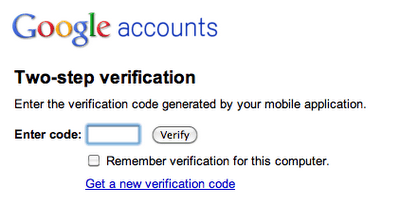| Google's cloud goes two-step secure |
| Monday, 20 September 2010 | |||
|
Google is hosting Google Atmosphere in Paris at the moment and there are some interesting claims and announcements being made. The first is that Google Apps has 3 million companies signed up and over 30 million users. What isn't made clear is how many of the 30 million are paying users.
Google Apps has a very generous free standard edition which is suitable for organisations with up to 50 users. If you pay for the Premier Edition all you get is unlimited users, some additional collaboration apps, Blackberry and Outlook integration and some additional security controls. Google is currently making a point of how much money a company can save by paying the $50 per year for the premium service but companies with fewer than 50 users can save up to $2500 by simply not upgrading. Its the standard problem making a service cheap enough so that it will be successful and then getting enough premium upgrades to make a profit. Also announced is the new two step user verification. Single step verification usually involve a user name and a password i.e. something the user knows. The problem with this, as we all know, is that passwords get stolen or given away and hence without other measures this is weak security. The best solution is to move to two step verification involving what the user knows and something the user owns - something to act as a hardware key. The problem is what hardware key does everyone own and values so much that they wouldn't lose it or give it up to a thief without a fight? Answer a mobile phone.
Google's security follows the mobile phone as key pattern by getting them to log in with user name and password, then sending a numeric key to the registered mobile phone number and not letting them have access until they provide the secret number. This is more secure but it has its problems too. Having to wait while a message comes in can sometimes be frustrating and what about users temporarily in areas of no or weak phone signal.
The big surprise is that Google seem to be offering this service to standard edition users of Google Apps - so no additional pressure to upgrade to the paying service. Can Google really dominate a market by giving most of its products away? It seems the answer might be yes.
<ASIN:0596515790> <ASIN:143022665X> <ASIN:059651588X> <ASIN:1564842673> <ASIN:0132457474> |
|||
| Last Updated ( Monday, 20 September 2010 ) |

